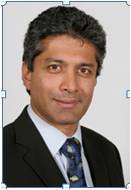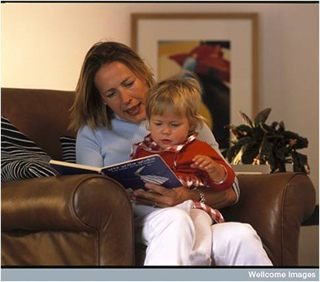Introduction to Development Part 1: Description and Influences course


This session will outline the development of the healthy child from birth to age five.
Learning objectives
By the end of this session you will be able to:
- Provide a descriptive framework for recording normal child development and its variations
- Describe what to have in the clinic consultation when undertaking a developmental assessment
- Outline the role of parents and other carers in observing and reporting child development
- Explain the influence of family, social and medical factors on child development and how they might promote or impair developmental progress
One of the important roles of the healthcare team is to be able to detect and act upon developmental concerns. Child development may be assessed at scheduled points, in response to concerns, or opportunistically.
This session will outline the development of the healthy child from birth to age five.
Before commencing this session you should have completed the following HCP sessions:
- 01_01 Introduction to the Healthy Child Programme (402-0001)
- 02_03 Using the Personal Child Health Record (PCHR) (402-0005)
- 03_01 Families in the UK (402-0006)
- 03_03 Hard to Reach Families (402-0009)
- 11_01 Overview and Principles of Screening (402-0070)
Dr Dilip Nathan currently works as a Consultant Paediatrician at Nottingham University Hospitals Trust where he jointly leads a team of Community Paediatricians. He is Designated Paediatrician for Unexpected Infant Deaths for Nottingham and Undergraduate Coordinator of Community Paediatrics at the University of Nottingham Medical School where he regularly lectures.
Dr Nathan’s current responsibilities involve directing the Child Health Surveillance programme for GP trainees across Nottingham and lecturing on the Advanced Paediatric Skills course (Nottingham Walk-in Centre).


Dr Nadya James is a Higher Specialist Paediatric Trainee in the East Midlands Deanery. Based in Nottingham: she works at the Child Development Centre, Queens Medical Centre, and in the community. Her interests include medical education, and she is involved in the training of undergraduates, junior doctors, and allied professionals.
- End of Life Care | Specialist care | I'm not lovea...
- Posted By eIntegrity Healthcare e-Learning
- Posted Date: 2025-01-10
- Location:Online
- This session explores the concerns patients and their partners may have about intimacy and sex when approaching the end of life. It examines the challenges this raises for professionals and how most effectively to approach the topic. This session was revi
- End of Life Care | Specialist care | Heart failure...
- Posted By eIntegrity Healthcare e-Learning
- Posted Date: 2025-01-10
- Location:Online
- This session has been written by a multidisciplinary group of cardiology and palliative care specialists to help palliative care clinicians become more confident with managing patients with heart failure and knowing when to liaise with heart failure servi
- End of Life Care | Specialist care | End-of-life c...
- Posted By eIntegrity Healthcare e-Learning
- Posted Date: 2025-01-10
- Location:Online
- This session explores the issues presented by end-of-life care in the context of homelessness. The scenario used in the session reflects the complexities that usually exist when caring for a people experiencing homelessness. This session was reviewed by W
- End of Life Care | Spiritual care | Understanding ...
- Posted By eIntegrity Healthcare e-Learning
- Posted Date: 2025-01-10
- Location:Online
- This session considers the meaning of spiritual need and distress. It also addresses how to assess the spiritual needs of those receiving end-of-life care, and when and how this can be achieved. This session was reviewed by Andrew Martin and Richard Kitch
- End of Life Care | Spiritual care | Spirituality i...
- Posted By eIntegrity Healthcare e-Learning
- Posted Date: 2025-01-10
- Location:Online
- This session explores how collaboration with the local community can help services ensure that spiritual care reaches all the people in end of life care who could benefit from it. This session was reviewed by Rebecca Whiting and Sarah Hanrott and last upd








